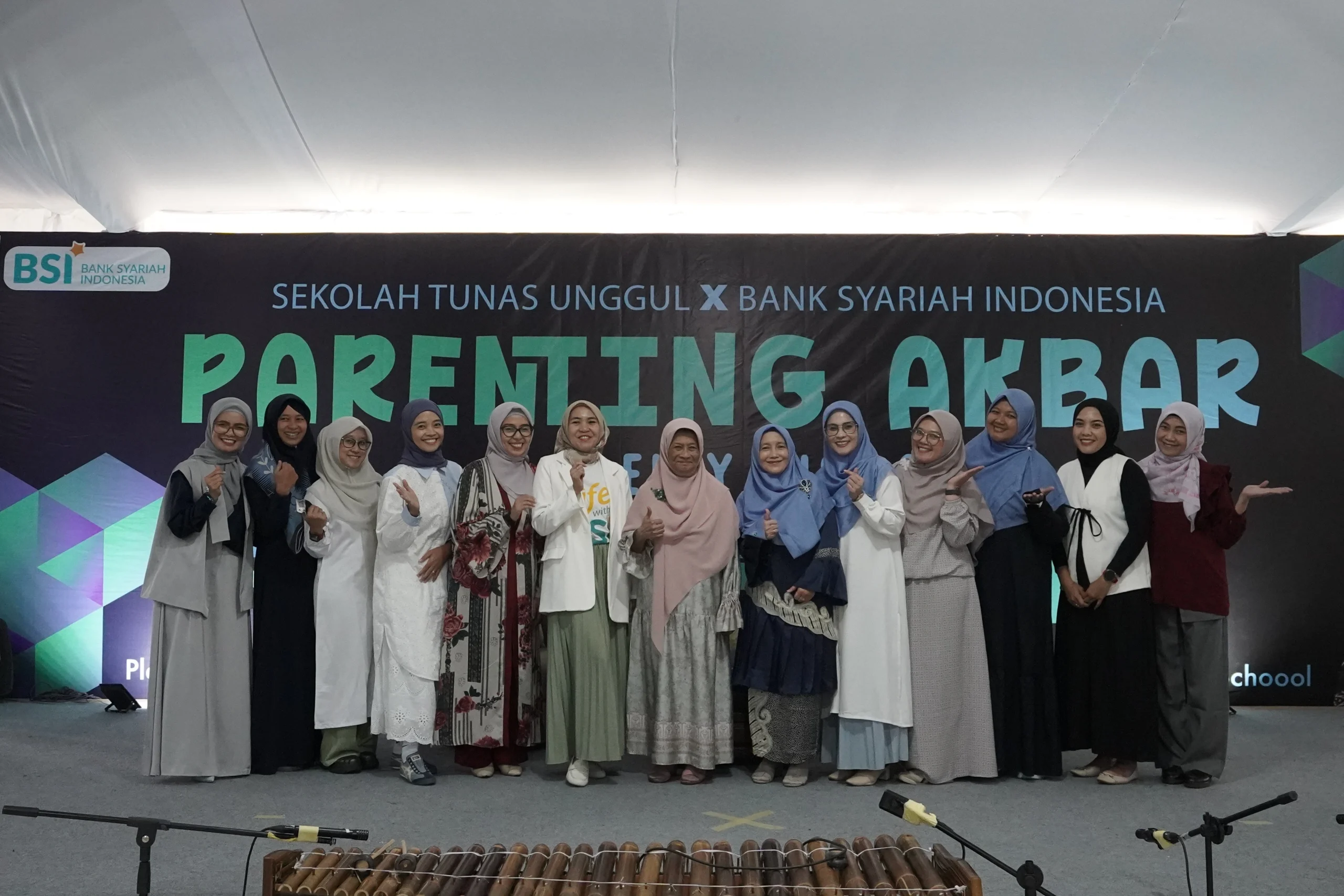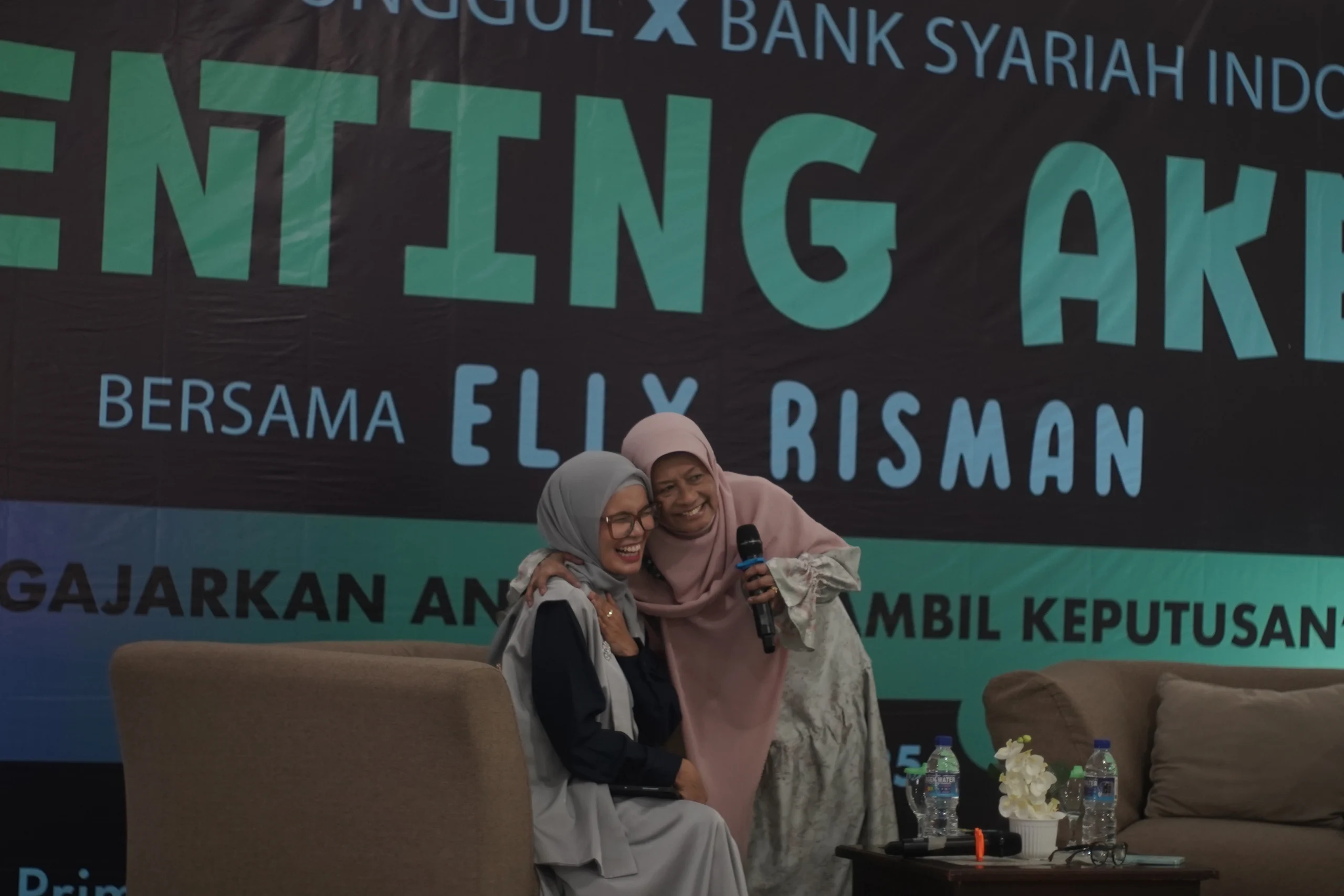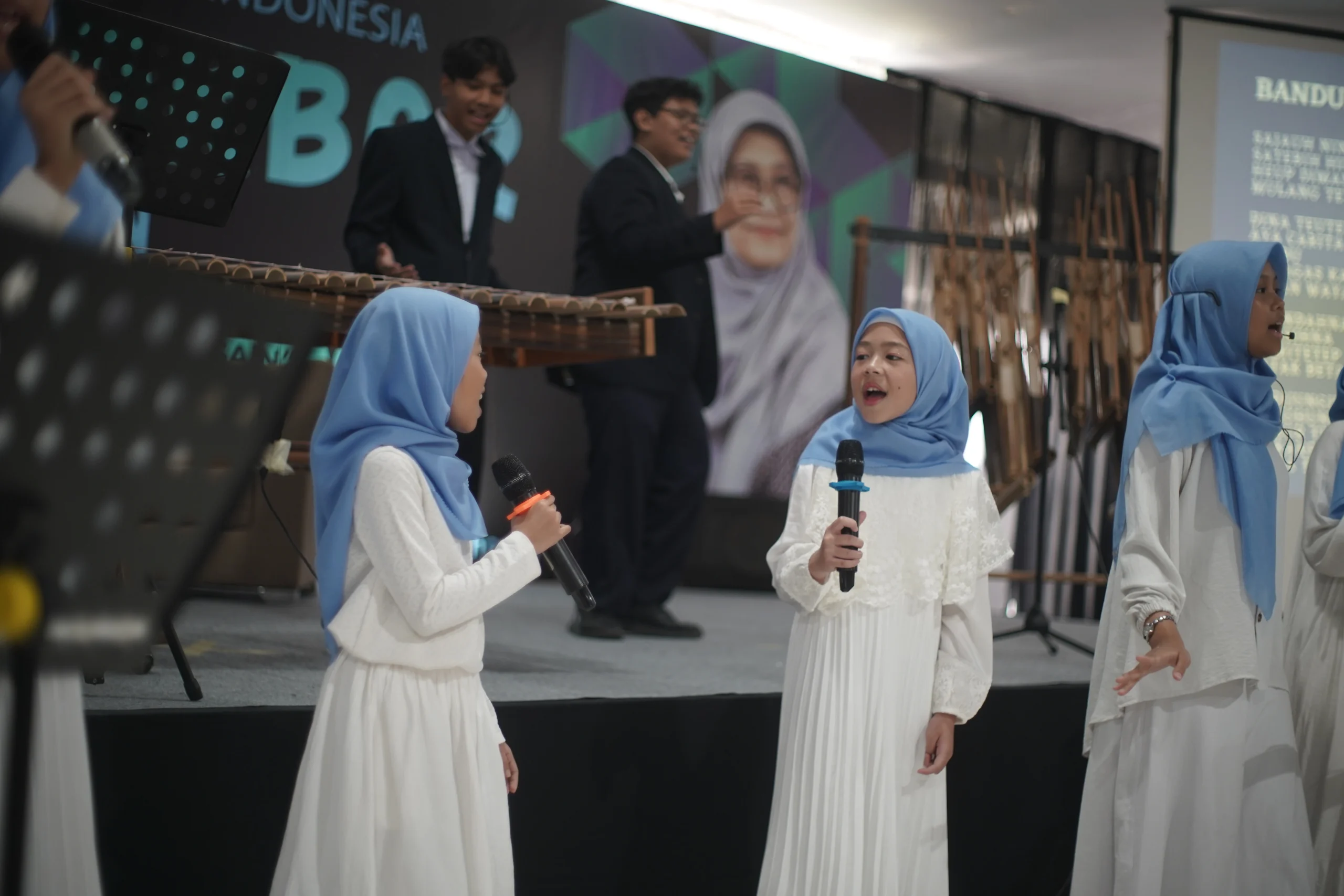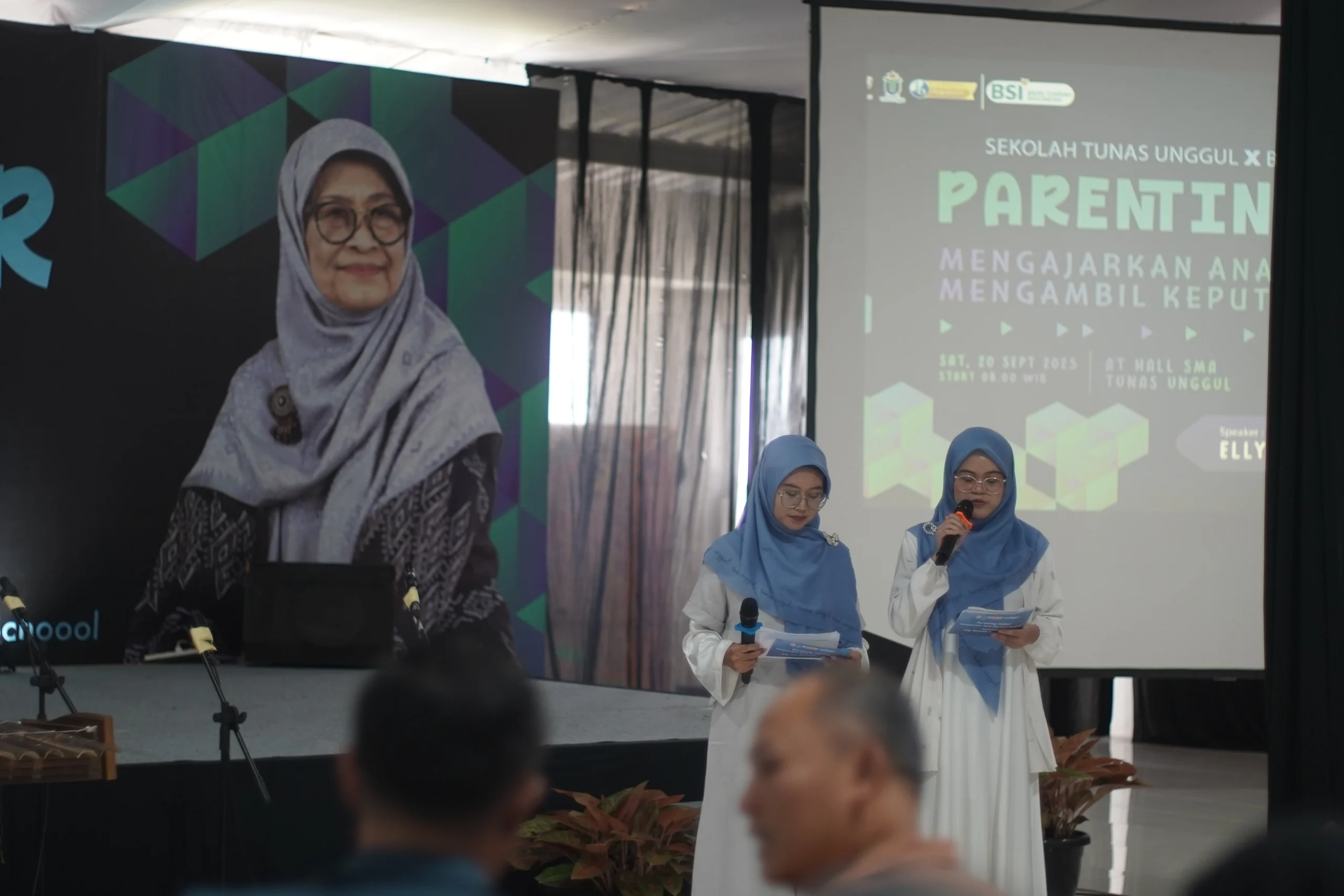“Mom, should I wear this outfit or that one?”. A simple question like this can be an entry point to train children to think, make choices, and eventually arrive at decisions. Yet, what often happens is quite the opposite—parents tend to decide everything for their children. From the clothes they wear, the food they eat, to the activities they must do, everything is dictated. As a result, children miss out on valuable opportunities to develop their critical thinking skills from an early age.
This was one of the key messages shared in Parenting Akbar with Elly Risman, held on Saturday, September 20, 2025. In her talk, “Bunda” Elly reminded parents that the process of decision-making doesn’t always have to begin with big matters. In fact, the best practice starts with the simple things in everyday life.
Ask More Questions, Give Fewer Orders
“If we keep making choices for children, they will miss the process of thinking. Yet it is precisely that process which shapes independence,” said Elly.
One of the easiest ways is to ask more questions throughout the day. Questions like, “Which clothes do you think feel more comfortable?” or “What do you think will happen if you play before eating?” help children learn about cause and effect and weigh their options.
Here, the role of parents is not to control but to supervise. The task is not to dictate, but to accompany. Parents simply need to explain the logical, natural, or even spiritual consequences of a decision. For instance, “If you don’t eat, your body may feel sick,” or “If you go to bed late, you’ll wake up feeling tired.” This way, children learn that every choice comes with a consequence.
Eight Steps in Parenting
Elly also outlined eight important steps to develop children’s ability to think and make decisions. Interestingly, these steps are not only about children, but also a deep reflection for parents themselves:
Here, the role of parents is not to control but to supervise. The task is not to dictate, but to accompany. Parents simply need to explain the logical, natural, or even spiritual consequences of a decision. For instance, “If you don’t eat, your body may feel sick,” or “If you go to bed late, you’ll wake up feeling tired.” This way, children learn that every choice comes with a consequence.
- Understand yourself as a parent. Are we truly ready to be parents, not just ready to marry?
- Set parenting goals together with your partner. Don’t simply copy how your own parents raised you—every era has its own challenges.
- Understand the stages of child development. Let children grow at their own pace; don’t push them beyond their age.
- Encourage independence. Independence doesn’t appear overnight—it needs to be trained from an early age.
- Let children make choices. From picking clothes to choosing learning interests, give them a voice.
- Work together in parenting. Father and mother should be aligned, not walk in separate directions.
- Listen to children’s feelings. Children need a safe space to be heard, not just directed.
- Avoid 12 popular but harmful parenting styles.
Such as ordering, blaming, belittling, comparing, labeling, threatening, over-advising, lying, shallow comforting, criticizing, mocking, and over-analyzing.
According to Elly, parenting styles that pressure children will only make them seek other ways to feel heard.
Learning from the Simple: Choosing Clothes
It may sound trivial, but allowing children to choose their own clothes can be a valuable exercise. From here, children learn to consider comfort, weather, and whether the outfit suits the day’s activities. Parents only need to provide reasonable limits—two or three options, for example—so children don’t feel overwhelmed.
The event became even more engaging during the Q&A session. One participant asked how parents can “fix” missed opportunities or mistakes in earlier stages of parenting.
Elly explained that it is completely normal to have such experiences. What parents can do is lower their ego, communicate honestly with their partner, and even acknowledge mistakes openly in front of their children. “Because often,” she said, “what’s hardest for us is admitting our mistakes to our own children.”
Learning from the Simple: Choosing Clothes
Rere, parent of a middle school student:
“I realized and gained so many insights during this session. What struck me most was that even letting my child choose their own clothes can already be a meaningful exercise.”
Shafira, parent of toodler:
“The part about the 12 popular parenting styles really opened my eyes. I used to think giving advice was always good, but apparently, if it’s excessive, it can actually hurt a child’s self-confidence.”
Testimony from the Committee, Receiving Positive Response
Niswah, Parenting Akbar Committee
“Parenting Akbar this time presented Mrs. Elly Risman with the theme Helping Children Make Decisions. The topic, simple yet essential, received positive responses from parents as it highlighted the importance of training children to think, choose, and make decisions (BMM) from an early age. Although the process is long, with parents’ guidance and support, the small steps taken today will have a significant impact on the children’s future development.”
Exciting Stories Behind Parenting Akbar
It was not only the parents who gained valuable experiences from Parenting Akbar 2025 — the students who took part in the performances also shared their memorable impressions.
Majesti Raesha Putri (Grade 6) described how meaningful it was for her to perform at the event.
“It was so much fun! I gained a lot of new experiences, and what I enjoyed the most was making many new friends,” Raesha shared enthusiastically.
Meanwhile, Fadhlan Ahmad D (Grade X) reflected on his experience from a deeper perspective.
“It was fun, I met many new friends who were friendly and funny. Through this event, I gained a lot of new experiences and valuable lessons. I also came to know Tunas Unggul even better, and realized how important the role of parents is in supporting their children,” he explained.
These reflections prove that Parenting Akbar is not only meaningful for parents, but also creates a space for learning, togetherness, and valuable experiences for the students involved.
Being Present Wholeheartedly
Ultimately, the essence of parenting is the presence of mindful parents. Children don’t need perfect parents; they need parents who are willing to keep learning, listening, and providing space for them to grow.
Parenting, in the end, is not about making children obedient. It is about raising them to stand tall, be confident in their choices, and wise in facing the consequences of their decisions.
“Children who get used to thinking from an early age will be more prepared to face life’s challenges in the future,” Elly concluded.
 Sekolah Tunas Unggul
Sekolah Tunas Unggul





